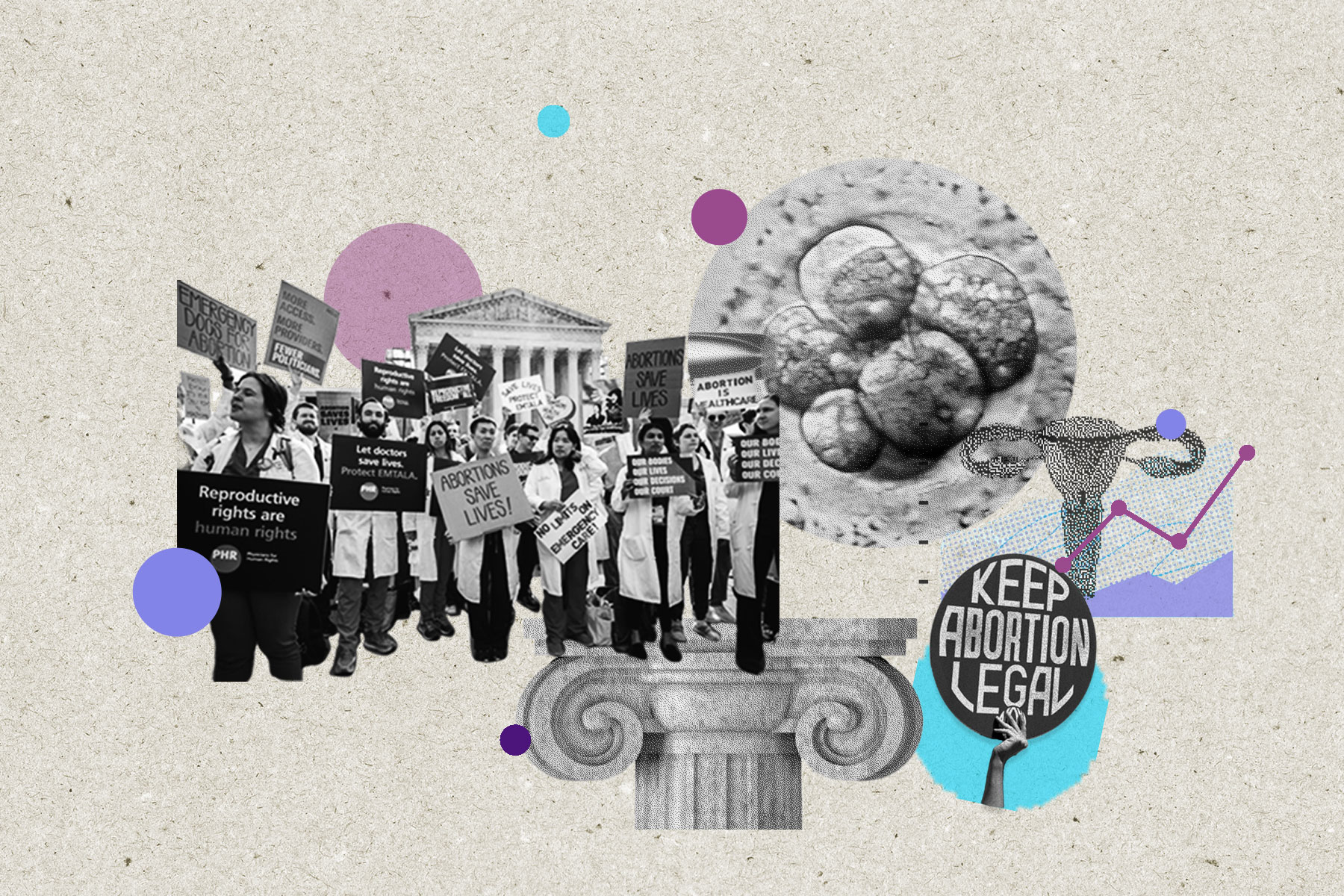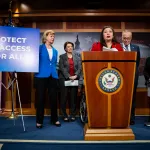Your trusted source for contextualizing America’s core issues. Sign up for our daily newsletter to read future poll stories first, or donate today to support more projects like this.
Most Americans do not believe that a fetus should have the legal rights of a person, per a new 19th/Survey Monkey poll, with 53 percent rejecting the anti-abortion ideology known as fetal personhood that Republicans opened the door to in their national party platform.
Forty-one percent of Americans said the government should protect a fetus’ rights from the moment of conception. (While before eight weeks of pregnancy, a fetus is technically an embryo, the idea is generally referred to as fetal personhood.)
There is a stark partisan divide: 81 percent of Democrats and 55 percent of independents expressed opposition to fetal personhood, compared with 28 percent of Republicans. Gender also mattered: 57 percent of women and 77 percent of nonbinary respondents opposed fetal personhood, while 50 percent of men did.
SurveyMonkey conducted this poll online from August 26 through September 4 among a national sample of 20,762 adults, with a modeled error estimate of plus or minus 1.0 percentage points.
Taken to its full extent, granting an embryo rights from the moment of conception would ban abortion completely. It could also criminalize miscarriage. Such a law would jeopardize the most effective fertility treatment, in vitro fertilization (IVF), since that regimen generally relies on creating multiple embryos, testing which are viable before implanting, and discarding those that people do not or cannot use. And it could be used to justify restrictions on emergency contraception, also known as Plan B, which some abortion opponents falsely believe constitutes an abortion.
Substantially larger shares of Americans oppose those policy goals, the poll found, further emphasizing the fragility of fetal personhood’s appeal.
Only 9 percent of respondents said the government should restrict IVF and other assisted reproductive technologies. Meanwhile, 48 percent said the government should protect access, and 38 percent said the government should not intervene at all. While nonbinary people were more likely to say the government should protect IVF’s availability — 68 percent — half of both men and women backed IVF protections.
Respondents also largely opposed restrictions on birth control, including emergency contraception. Only 13 percent said they want the government to restrict use of emergency contraception, compared with 46 percent who favor protections and 36 percent who would like no new government policies. Men were more likely to support restrictions, at 15 percent.
Fetal personhood has become an ultimate goal for an influential sector of the anti-abortion movement. While declining to endorse an explicit national abortion ban, the Republican Party has remained open to this line of thinking. This summer, the party endorsed a platform that said states could grant fetuses equal protection under the Constitution’s 14th Amendment — a theory that abortion opponents argue could be used to establish national fetal personhood.
-
Explore Our Findings:
-
Explore Our Findings: The State of Our Nation: Polling Americans’ priorities for Election 2024
More people — 65 percent — believe abortion should be legal all or most of the time than those who backed the idea behind fetal personhood. This split suggests that even those who say rights start at the moment of conception don’t necessarily endorse its outcomes.
IVF’s popularity was put on full display this February, when the Alabama Supreme Court temporarily ended access to the procedure in state, arguing that the state’s constitution gave embryos the same rights as people. That decision sent shockwaves across the country, prompting the state legislature to pass legislation quickly restoring access to the procedure. The state did not overturn the state’s ruling, but simply shielded IVF practitioners from prosecution.
The issue has also become a critical talking point in the presidential election.
Vice President Kamala Harris and Minnesota Gov. Tim Walz, the Democratic presidential and vice presidential nominees, have argued that if elected, Republicans will threaten the availability of IVF as well as abortion, and their campaign has repeatedly pointed to the GOP platform as evidence.
Former President Donald Trump, in an effort to respond, recently claimed that if elected, he would make all insurance cover IVF at no cost — though he did not say how he would do so, and making such a change would be impossible without Congress. Still, Trump’s new rhetoric has spooked anti-abortion activists, who have historically considered Trump an ally.
To check your voter registration status or to get more information about registering to vote, text 19thnews to 26797.







